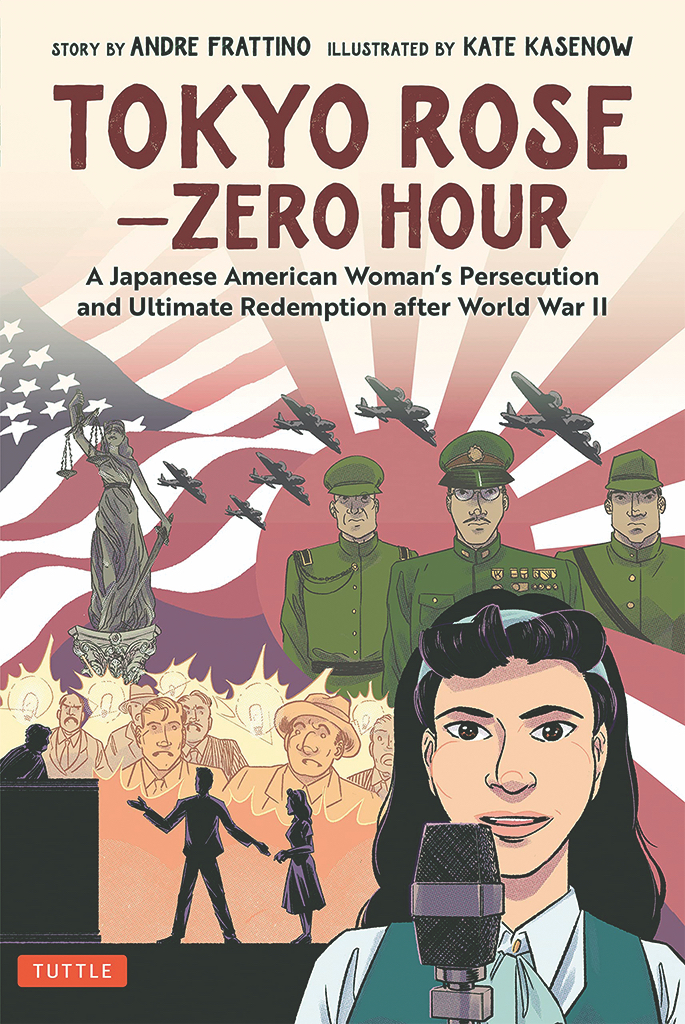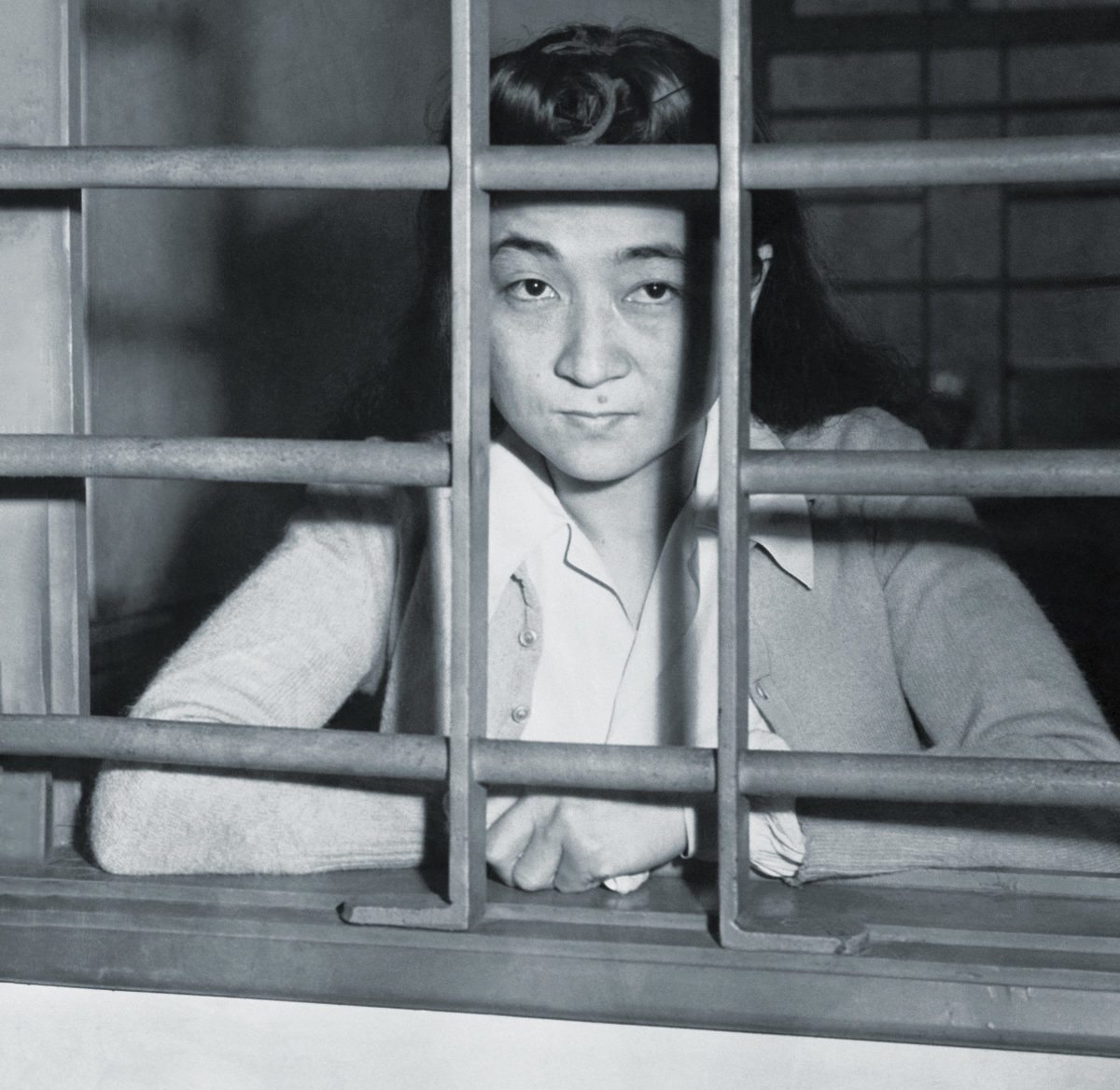Graphic novels often tell the tales of superheroes and intrepid zombie hunters. A new one sets out instead to salvage the reputation of a young woman vilified as a traitor after World War II.
In Tokyo Rose: Zero Hour, released by Tuttle Publishing in September 2022, graphic novelist Andre Frattino seeks to redeem the legacy of Iva Toguri D’Aquino, one of only seven Americans ever convicted of treason. Her crime: allegedly mouthing Imperialist Japanese propaganda in radio broadcasts designed to demoralize American troops in the Pacific.

Frattino makes the case that there really was no Tokyo Rose and that D’Aquino—an American citizen and daughter of Japanese immigrants who became trapped in Tokyo during a visit when the war broke out—was innocent all along.
Frattino remembers watching old black-and-white World War II movies in which sultry-voiced Japanese sirens sought to sap the morale of American troops over the radio by making them homesick and worried that they’d been betrayed by wives and girlfriends back home. “I remember this character from all these old movies,” he says. But D’Aquino “was the one that was singled out and persecuted for it.”
In many ways, the woman labeled Tokyo Rose was an all-American girl. Iva Toguri was born on the Fourth of July in 1916 to parents who wanted to Americanize her as much as possible. Growing up, she didn’t speak Japanese or learn to use chopsticks. She played tennis and harbored a crush on actor Jimmy Stewart. She got a degree in zoology from UCLA.
Her life was upended after her parents sent her to Tokyo in the summer of 1941 to care for a sick aunt. “Japan was as foreign to her as it would have been to any of us,” Frattino says. She didn’t like eating rice regularly—“It’s killing me,” she wrote in a letter home.
Unable to read Japanese newspapers, Toguri was slow to realize how badly U.S.–Japanese relations were deteriorating in the fall of 1941. Belatedly, she booked passage back to the United States in November. But she missed the ship because of a paperwork error—and was stuck in Tokyo after Pearl Harbor.
She refused to renounce her American citizenship, was labeled an enemy alien, and was denied a ration card. She borrowed money from friends, including the Portuguese-Japanese pacifist Felipe D’Aquino, whom she later married. She found work as a typist at Radio Tokyo and eventually went on the air with an Australian POW, broadcasting as “Orphan Ann” to American troops in the Pacific. Their performances were mostly humorous and meant to sabotage any propaganda content with sarcasm. Introducing one song, for instance, she joked: “Dangerous enemy propaganda, beware! Our next propagandist is Arthur Fiedler with the Boston Pops Orchestra.”
After the Allied victory, D’Aquino was briefly detained in Tokyo, then released when General of the Army Douglas MacArthur’s staff found no evidence that she had aided Japan during the war. But radio personality Walter Winchell and the American Legion lobbied relentlessly for her to be prosecuted. She was re-arrested upon returning to the United States in 1949, found guilty of treason, and sent to prison for six years.
After evidence emerged that she’d been convicted on perjured testimony, she was pardoned by an outgoing President Gerald R. Ford on January 19, 1977. She settled in Chicago, worked at a shop selling Japanese products with her father, and divorced Felipe in 1980 after he was repeatedly refused entry to the United States. “She lived the rest of her life rather quietly,” Frattino said. “She was just the little lady behind the counter.” D’Aquino died of natural causes in 2006 at age 90.






